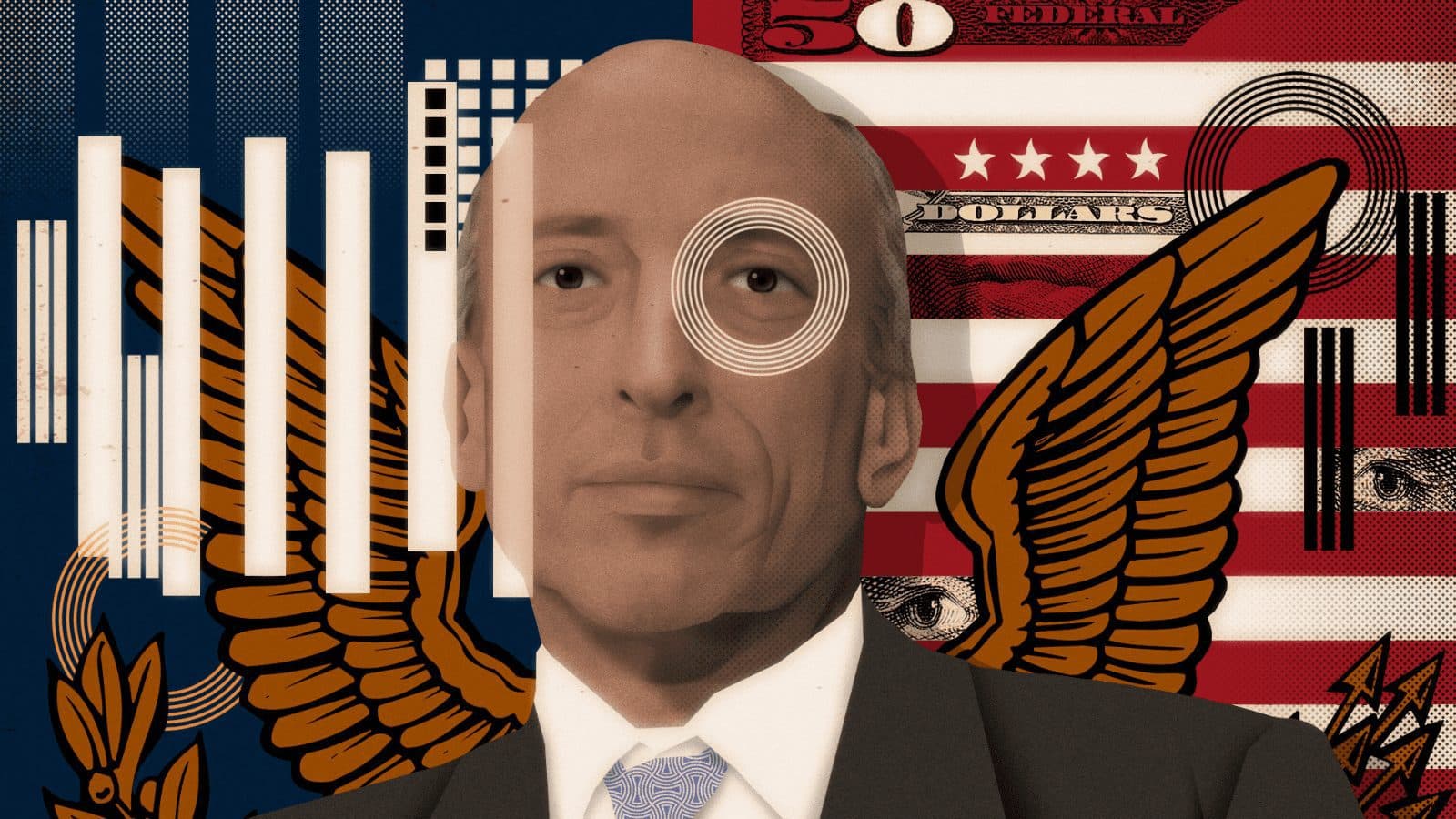Gensler: Crypto Intermediaries Must Register With SEC ‘In Some Capacity’
Agency staff working with industry players to get their exchange, broker-dealer and custodial functions regulated

SEC Chair Gary Gensler | Blockworks exclusive art by axel rangel
- SEC Chair Gary Gensler restates that “the vast majority” of crypto tokens are securities
- The regulator is seeking a “pathway” for crypto tokens that are securities and those that aren’t to trade alongside one another
SEC Chair Gary Gensler is once again set to encourage crypto firms to register with regulators in remarks before the US Senate Committee on Banking, Housing, and Urban Affairs on Thursday.
In his testimony, published a day early, Gensler states that the vast majority of the nearly 10,000 tokens in the crypto market are securities. The chair has asked SEC staff to work with entrepreneurs to get their tokens registered and regulated as such.
“Given that most crypto tokens are securities, it follows that many crypto intermediaries — whether they call themselves centralized or decentralized — are transacting in securities and have to register with the SEC in some capacity,” Gensler said.
This would include crypto intermediaries registering their exchange, broker-dealer and custodial functions, he added, which could result in breaking up these functions into separate legal entities to mitigate conflicts of interest and boost investor protections.
The chair said in a June interview with CNBC that he believes bitcoin is a commodity. He noted at the SEC Speaks event last week that he supports allowing the Commodity Futures Trading Commission (CFTC) to oversee bitcoin — a point proposed in the planned Digital Commodities Consumer Protection Act introduced last month by Sens. Debbie Stabenow, D-Mich., and John Boozman, R-Ark.
The SEC is working on recommending a pathway for crypto tokens that are securities and those that aren’t to trade alongside one another, Gensler said in his written testimony set to be given Thursday.
“To the extent that crypto intermediaries may need to one day register with both the SEC and the Commodity Futures Trading Commission, I would note, we currently have dual registrants in the broker-dealer space and in the fund advisory space,” he added.
The remarks echo Gensler’s pattern of urging firms in the nascent segment to collaborate with the SEC, which some industry watchers have said has failed to move the needle from a regulatory standpoint.
Genlser wrote in a Wall Street Journal opinion piece published last month that he encourages crypto lenders to “come in and talk to SEC staff.”
Kristin Smith, executive director of Blockchain Association, told Blockworks at the time that the SEC chairman’s insistence that crypto companies meet him at the table “rings hollow,” noting that investigations, subpoenas and lawsuit threats have followed previous meetings.
Get the news in your inbox. Explore Blockworks newsletters:
- The Breakdown: Decoding crypto and the markets. Daily.
- 0xResearch: Alpha in your inbox. Think like an analyst.






